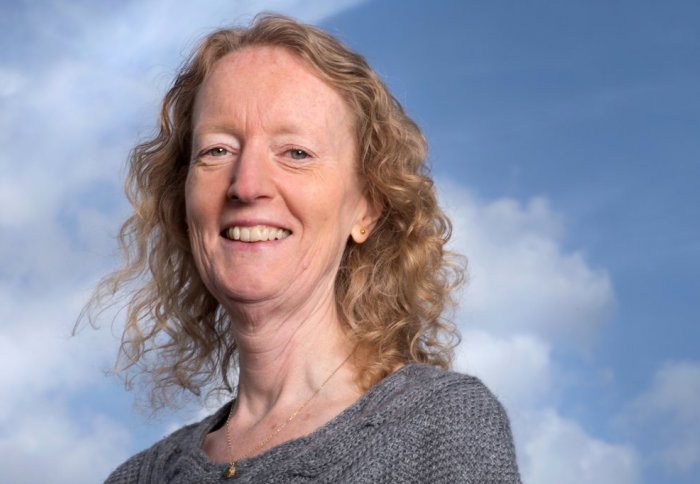Global warming under the spotlight at the Business School

Business School students were given an expert insight into climate change and how global warming could affect the world in a talk this week.
“In the 21st century, all businesses need to be thinking about climate change, not just those companies that are focused on sustainability issues.
– Dr Paolo Taticchi
Principal Teaching Fellow and Director of the Global MBA programme at Imperial College Business School
Professor Joanna Haigh, Co-Director of the Grantham Institute – Climate Change and the Environment at Imperial, outlined the latest scientific evidence about climate change, the natural and man-made factors that influence global warming and how innovation is needed to tackle the issues.
Professor Haigh’s talk marked the start of the second Future By Imperial series – talks that bring together leading academics from across Imperial with students and the general public to discuss big scientific challenges and breakthroughs, from discoveries in space to cancer research, to 3D printing.
Climate change issues are a particular focus for Imperial College Business School. A new MSc in Climate Change, Management and Finance starts in October this year, and next month the Business School is holding the Mobilising Business, Acting on Climate conference which looks at at how businesses can address the challenges around sustainability.
In her talk, Professor Haigh looked back at the past 2000 years of temperature records to highlight trends in global warming from before the time when scientific instruments were used. Global records show that February 2016 was the warmest on record and temperature records show how last month was around 1.35°C warmer than the long-term (1951-1980) average for the month.
She went onto describe how the climate reflects a balance between the energy coming in from the Sun and the heat energy leaving the planet, and how this can be disrupted by increasing concentrations of industrial “greenhouse gases”, especially carbon dioxide (CO2).
She later showed how basic physics can be used to construct computer models to forecast weather and changes in the climate. Looking at the reasons why weather forecasts aren’t perfect, she outlined the scenario of the “great storm” of October 1987, which wasn’t correctly forecast in the UK, due to missing data from the Atlantic.
Looking to the future, Professor Haigh looked at what the world would look like in 2100 if emissions continue to rise – resulting in 2 billion people without water, greater exposure to heatwaves and 60 percent of cropland being less suitable for agriculture. “By emitting greenhouse gases into the atmosphere we are performing a very dangerous experiment with planet Earth.” she said.
Later, the audience were invited to ask questions, resulting in a lively discussion which addressed a variety of topics from the need for government incentives to encourage businesses to become carbon neutral, to the introduction of carbon markets in China and California.
Reflecting on the discussion, Professor Haigh said: “Climate change is arguably the biggest challenge facing our planet and we will need everyone to come together if we are going to tackle it effectively – from scientists, to policy makers, to the public, to business people. It can be a controversial and emotive issue and it was great to engage in discussion with a dynamic audience of people from different backgrounds. A key point raised in the discussion was about how we can achieve a decarbonised future, with questions on how carbon might be priced, and to what extent new technologies can help tackle climate change.”
Dr Paolo Taticchi, Principal Teaching Fellow and Director of the Global MBA programme at Imperial College Business School, said: “In the 21st century, all businesses need to be thinking about climate change, not just those companies that are focused on sustainability issues. Joanna’s talk gave students the opportunity to gain insights and inspiration that they can take forward in their future careers. Imperial College Business School is unique in being able to draw on the expertise of colleagues across the College who are world-leaders in multiple scientific fields.”
Article text (excluding photos or graphics) © Imperial College London.
Photos and graphics subject to third party copyright used with permission or © Imperial College London.
Reporter
Laura Singleton
Communications Division